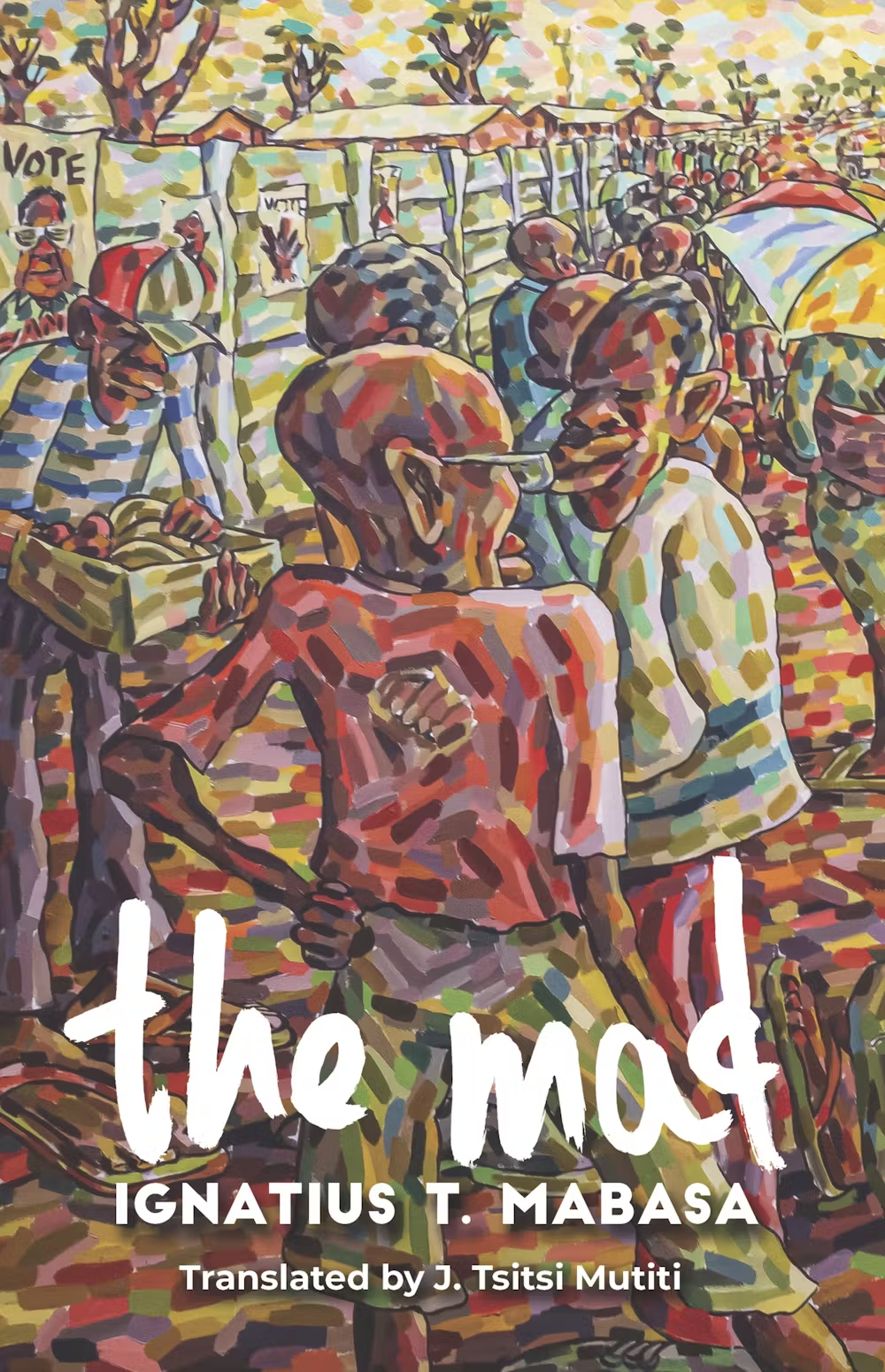African Novels in Translation: Ignatius Mabasa’s The Mad marks a bold moment
.jpg)
For decades, African literature in translation has largely moved in one direction, works written in European languages like English, French, or Portuguese being rendered into African languages. What has been missing, however, is the reverse: novels written originally in African languages reaching global audiences through English translation. That imbalance is finally beginning to shift.
The launch of the African Language Literatures in Translation series by the University of Georgia Press signals a watershed moment. Edited by US-based literary scholars Christopher Ouma and Alexander Fyfe, the series sets out to introduce major works written in African languages to new readerships across the English-speaking world.
Among the inaugural titles is The Mad, a translation of Zimbabwean author Ignatius Mabasa’s acclaimed Shona novel Mapenzi. Jointly released in the United Kingdom and Zimbabwe by Carnelian Heart Publishing and amaBooks, the publication represents more than a literary milestone, it represents a cultural correction.
Mapenzi: A Landmark in Shona Literature
First published in 1999, Mapenzi quickly became a landmark text in Shona literature. Written in the rhythms and cadences of Zimbabwe’s most widely spoken Bantu language, the novel tells the story of a disillusioned war veteran navigating the shattered promises of independence. Through his eyes, readers witness the collapse of social values and the descent into a society caught between hope and despair.

Mabasa’s daring prose, by turns lyrical, satirical, and chaotic, drew comparisons to Zimbabwe’s iconoclastic Dambudzo Marechera and to the stylistic innovations of Charles Mungoshi, a master of both Shona and English. Mapenzi was adopted as a school text, shaping a generation of readers at the turn of the millennium.
More than a novelist, Mabasa has become a central figure in the promotion of indigenous African writing. His commitment was underscored when he became the first scholar to submit a PhD in Shona at Rhodes University in South Africa. He is also a translator himself, most recently rendering Tsitsi Dangarembga’s Nervous Conditions into Shona. For Mabasa, Shona is not a “minor” language but a vibrant medium capable of sustaining complex thought and artistic innovation.
The Mad: Bringing Shona to English Readers
Now, over twenty years later, Mabasa’s Mapenzi is available in English as The Mad. The translation, undertaken by J. Tsitsi Mutiti, is a demanding feat. Mabasa’s original prose brims with wordplay, idioms, song lyrics, and a narrative structure that challenges conventional form.
Mutiti’s version succeeds in capturing much of the lyricism and rhythm of the original, even if at times the translation veers into overly literal renderings of dialogue. The absence of a translator’s note is notable; such a commentary could have shed light on the interpretive choices and challenges of carrying Shona into English. Still, the achievement is remarkable: The Mad feels alive, preserving the spirit as well as the sense of Mabasa’s Shona text.
Translation as Decolonisation
The importance of this moment extends beyond literature. Translation from African languages into English is an act of cultural redress, a form of decolonisation that makes space for African voices on their own terms.
Kenyan author Ngũgĩ wa Thiong’o, who passed away earlier this year, was one of the most prominent advocates for writing in African languages. He argued that the struggle for decolonisation could not be separated from the struggle over language. Yet he acknowledged that African-language writing remained marginalized in global publishing circuits.
The African Language Literatures in Translation series responds to this gap. Upcoming titles include Ali Hilal Ali’s Mmeza Fupa (Kiswahili), Katama Mkangi’s Walenisi (Kiswahili), Ntšeliseng ’Masechele Khaketla’s Left Behind (Sesotho), and Halfani Sudy’s Kirusi Kipya (Kiswahili). Together, these works represent a cross-continental effort to restore African languages to the global literary imagination.
The Power of the Vernacular
What The Mad demonstrates is that African languages are not relics or local curiosities, but living vessels of imagination and critique. In Shona, Mabasa created a narrative rich with satire, innovation, and social commentary. In Mutiti’s English, that vision now crosses linguistic borders without losing its texture.
Translation, in this sense, is not simply about accessibility. It is an archival and interpretive practice that reshapes the canon and broadens readership. It allows English-speaking audiences to encounter African novels as they were first imagined, rooted in the idioms, humor, and sensibilities of African languages.
With The Mad, a new era begins. The vernacular imagination steps onto the global stage, inviting readers to rethink what African literature is, and where it comes from.
Credit: This article is written by Tinashe Mushakavanhu, Assistant Professor at Harvard University, and originally published in The Conversation under a Creative Commons license.

